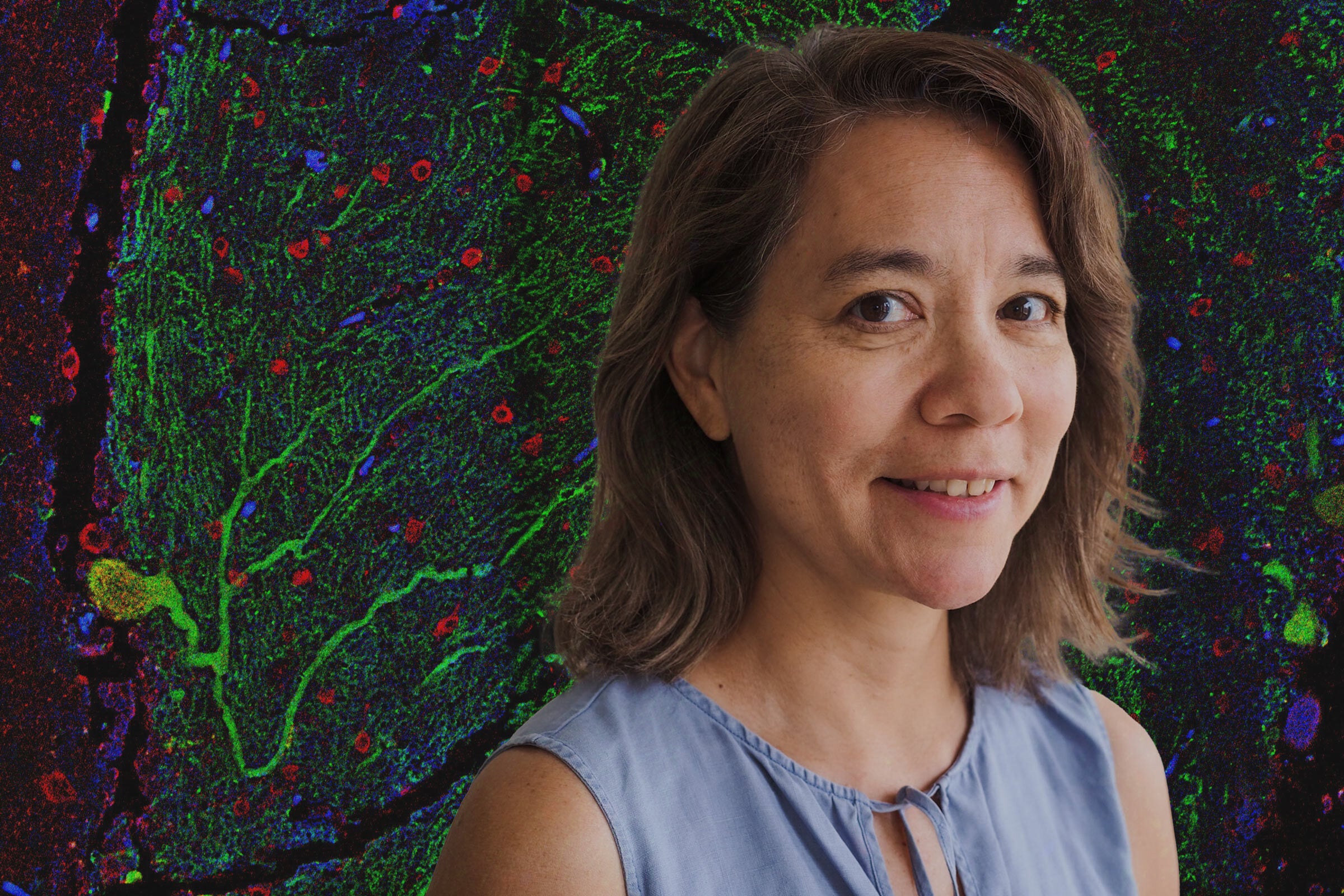Microbe Research Team Awarded Gold Medal at 2019 iGEM Competition

(From right) Genevieve Mortensen and Noor Radde onstage at the ceremony accepting their award. Photo courtesy of Justin Knight.
A team of undergraduate researchers involved with the Department of Molecular Biosciences received awards in two categories at the 2019 International Genetically Engineered Machine (iGEM) Jamboree, the largest showcase of synthetic biology innovations in the world.
The team of 15 undergraduates, advised by Dennis Mishler, assistant professor of practice in MBS, received a Gold Medal and best measurement award at the event.
Five of the researchers from the team, Alex MacAskill, Noor Radde, Diya Bhat, Shireen Shah and Genevieve Mortensen attended the event in Boston to receive the awards and present on their project, a tool called the 'burden-o-meter' that measures burden in modified cells.
Mishler explained that DNA added to cells causes this burden the team set out to measure.
"When biologists modify cells with extra DNA, cells are forced to reallocate resources away from simply growing and multiplying to also expressing the extra DNA, resulting in a slower growth," Mishler said. "This slower growth rate is the 'burden' that the extra DNA imparts on the cells. The more burdensome a genetic device is, the sooner the population of cells will cease to function."
Mishler said that an understanding of burden can help the biotechnology industry and other labs that rely on modified cells.
"By understanding how much burden a DNA sequence has," Mishler said, "we can determine what sequences are best to work with when doing research in the lab, or when producing various bioproducts in industry."
Judges at iGEM award projects Bronze, Silver or Gold medals based on the number of criteria they meet. The burden-o-meter project was one of 163 teams, out of 353 total, to meet the highest threshold and receive a Gold medal.

The 2019 undergraduate iGEM team in front of their research poster. (Front from left) Alex MacAskill, Genevieve Mortensen, Shireen Shah. (Back from left) Noor Radde, Diya Bhat.
The team also received the Best Measurement Special Prize, an award that recognizes projects that create repeatable, well-described and well-calibrated measurements that are useful for other researchers. They were also a finalist for Best Foundational Advance, a prize that recognizes technologies that "help to make new accomplishments possible" according to the iGEM website.
Team member Alex MacAskill, a biochemistry junior, said the achievements reflect UT's prowess in the field.
"Going to this this international competition and winning a big award like this, it shows that UT has a presence on the global stage and a presence in the up and coming field of synthetic biology," MacAskill said.
Shireen Shah said the award proves the impact of their work.
"Winning the award is proof that what we do here changes the world," Shah said.
Due to funding constraints, only five of the 15 team members were able to attend the event in Boston, Mishler said, adding that the goal for future iGEM teams is to secure funds to send more students who represent the school on an international level.
While the burden-o-meter iGEM team consisted of UT undergraduates, it is not only universities that compete. At last year's iGEM competition, a team of high school researchers advised by University of Texas at Austin professor of molecular biosciences Andy Ellington took the bronze award for their project.
The project, titled 'Infection Detection,' was run by students enrolled at the Liberal Arts and Science Academy in Austin who set out to create a kit that could rapidly diagnose the Human Immunodeficiency Virus (HIV) in infants.



